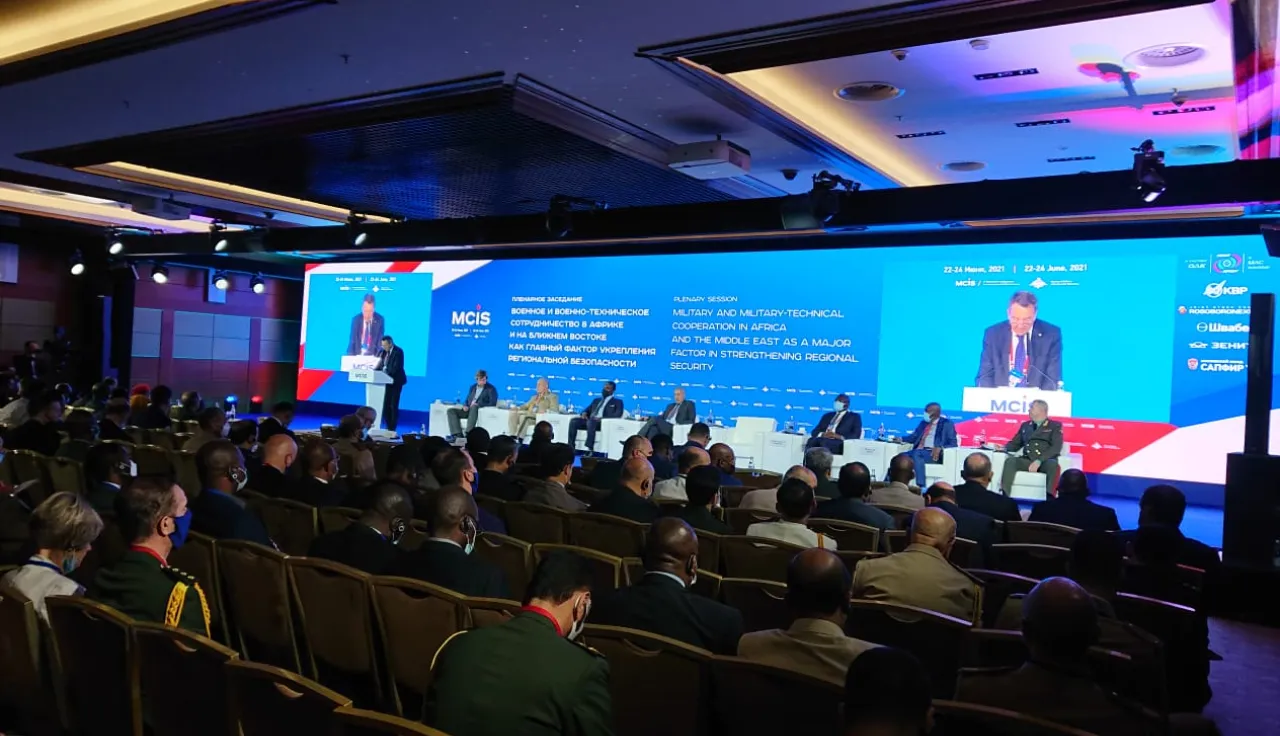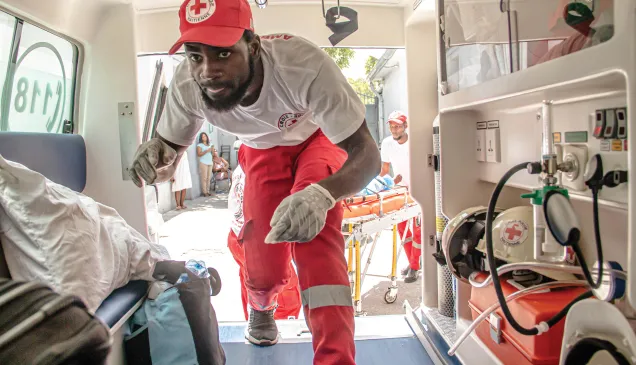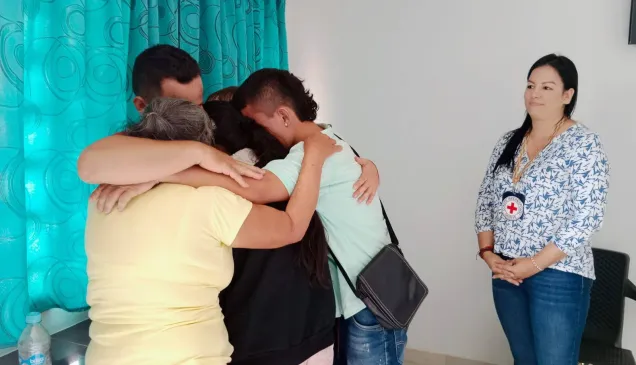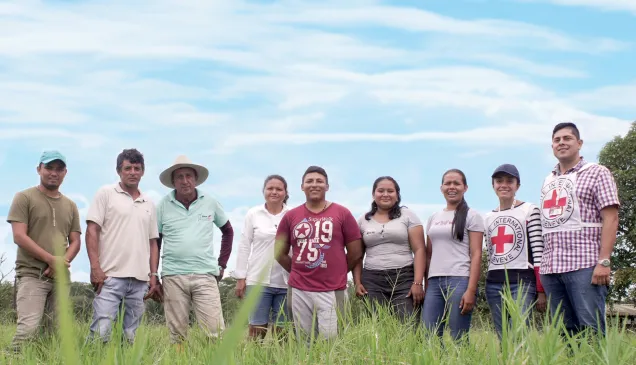Humanitarian and military dialogue : Engaging with militaries to protect civilians in conflict zones

Speech given by Mr Peter Maurer at the Moscow International Security Conference, June 24, 2021
Excellencies, colleagues
Thank you to the Ministry of Defense for the opportunity to address you: In the face of widespread suffering in conflict zones around the world, it is critical that the humanitarian perspective is considered in discussions on strengthening security. I firmly believe that preventing and alleviating human suffering are practical pathways to stability.
Today I will bring forward areas of potential cooperation between security actors and the International Committee of the Red Cross.
This is a timely discussion: When I take stock of the conflicts where ICRC works, I observe a vast zone of instability – extending from western Sahara via Libya to Iraq in the north, and through the Sahel, the Lake Chad Basin, Sudan, and the Horn of Africa in the south.
In light of the massive humanitarian needs in these regions, the ICRC concentrates its work in the Middle East and Africa, comprising 72 per cent of our annual budget.
The ICRC works where we are most needed.
We maintain an unwavering commitment to respond in extremely complex circumstances and evolve our response in the face of changing humanitarian needs.
ICRC's global engagement with militaries, police and armed groups is fundamental to our mandate to protect the lives and dignity of people in conflict by supporting security actors to understand and integrate law into doctrine, training, planning and the conduct of operations.
To illustrate, in the last two years ICRC has conducted over 2,600 events with over 175,000 military and police personnel in 113 countries despite the pandemic restrictions.
These events involved primarily mid to senior level officers – policy makers and operational commanders - from State militaries, security alliances, coalition forces and peacekeepers.
...our engagement has a broad scope, including pre-deployment briefings, workshops and training on international humanitarian law
As many of you know from first-hand experience, our engagement has a broad scope, including pre-deployment briefings, workshops and training on international humanitarian law, ICRC participation in combat exercises, and conducting specialist courses.
Our approach gives ICRC the widest possible access both to the victims of the violence and to the actors involved in war and security operations.
Shared humanitarian objectives can help warring parties reach agreements, whether on the exchanges of prisoners, evacuation of the wounded, crossline humanitarian activities, or the respectful exchange of human remains.
Acting as a trusted neutral intermediary, the ICRC, is called on to facilitate mutual trust-building measures thanks to our neutral, independent, and impartial role.
In October, we facilitated the return of more than 1,000 people detained in relation to the conflict in Yemen.
In Nagorno Karabakh, we work side-by-side with the parties to the conflict and Russian peacekeepers to recover the dead, and to visit detainees and prisoners of war.
Excellencies, Colleagues, a key feature of almost every major conflict in which the ICRC operates is partnered military operations. It is on this topic that I will now focus my remarks.
Conflicts involve an increasing number of parties and other actors implicated directly and indirectly.
Today just one third of armed conflicts are between two belligerents; 22% involve 10 or more.
As the number of actors and conflicts has grown, it has become the norm for actors to work towards their strategic objectives in partnership with others. More than one-third of non-international armed conflicts today involve "coalitions" of States or non-state armed groups that are parties to the conflict.
Partnered operations cover a spectrum of support provided to belligerents including to train, advise and assistmissions, to accompany, or to provide kinetic support in various forms.
Each partnership is different, each offers risks and opportunities. But each time an alliance is formed in a war zone, a bond is created that has the potential to increase – or alleviate – human suffering.
It is critical that decision-makers consider pragmatic ways to reduce the risk of harm.
However, too often we see the opposite. A lack of coherence between actors in a support relationship results in a diffusion of responsibility when roles and command authority are not clearly defined. This can inadvertently or, worse, deliberately, diminish the protection afforded to people affected by conflict and other violence.
We have three asks of those engaged in support relationships:
- To integrate an analysis of the risks and consequences for civilians and others not fighting into how they manage their support relationships;
- To take greater individual and collective responsibility for ensuring that civilians and others not fighting are protected;
- In the event of allegations of IHL violations or other problematic behavior by a partner to take meaningful action.
The ICRC aims to assist militaries – both those supported and those supporting – to leverage their influence and expertise to protect civilians before, during and after such operations through structured planning, assessment and monitoring.
We continue to develop practical tools and approaches, such as the release of a new publication called Allies, Partners and Proxies which contains broad guidance for militaries and others on bringing a humanitarian dimension into their partnerships.
The ICRC is also developing a Commanders Handbook, which is a granular tool for military practitioners to provide practical resource on planning, execution, and review of partnered military operations.
We also seek to convene militaries with significant experience and perspectives to contribute with us as we develop such tools for wider use.
Ultimately this approach is work beneficial to all
Ultimately this approach is work beneficial to all: both to partnered security actors to optimize opportunities and to better protect civilians, the wounded and detained.
Whether on partnered operations, on the respect of international humanitarian law, the ICRC steps forward to offer our support and expertise to armed and security forces around the globe.
We can – and we must – do more to protect civilians suffering daily through the terrors of war.
Thank you.



